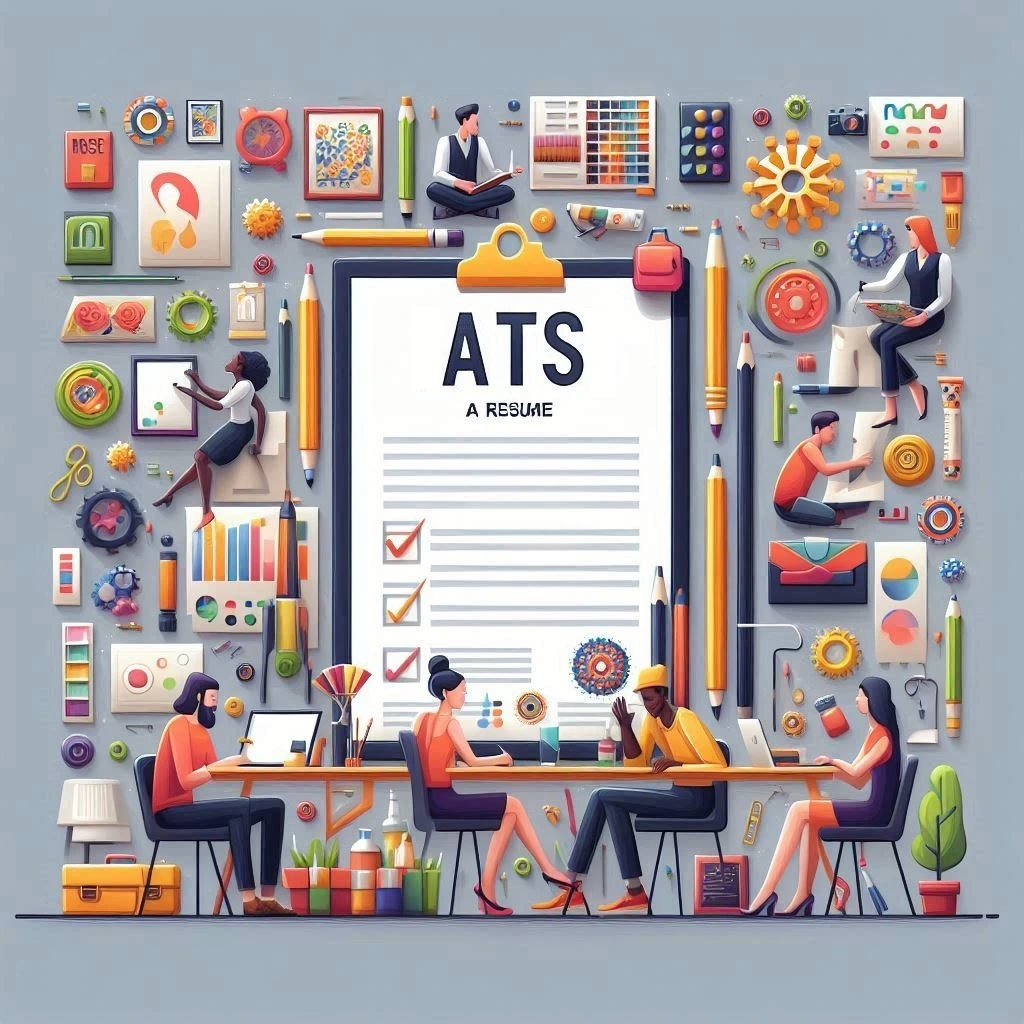Introduction
Artificial Intelligence (AI) has emerged as a transformative force in today’s technological landscape, fundamentally altering how we interact with the world around us. At its core, AI refers to the simulation of human intelligence processes by machines, particularly computer systems. This encompasses a range of capabilities, including learning, reasoning, problem-solving, perception, and language understanding. As AI technologies continue to evolve, their relevance becomes increasingly pronounced across various sectors, from healthcare and finance to education and entertainment.
The demand for AI skills is surging, driven by the need for organizations to harness data-driven insights and automate processes. According to recent trends, industries are actively seeking professionals who can develop, implement, and manage AI solutions. This growing demand underscores the importance of acquiring AI competencies, as they are not only valuable for career advancement but also essential for contributing to innovative projects that shape the future.
However, embarking on the journey to learn AI can be overwhelming, especially for beginners and self-learners. A structured approach to learning AI is crucial for several reasons:
- Clarity and Focus: A well-defined roadmap helps learners set clear goals and expectations, allowing them to focus on relevant topics and skills that align with their career aspirations [12].
- Efficient Learning: By breaking down the learning process into manageable steps, individuals can build a solid foundation before progressing to more advanced concepts, enhancing their understanding and retention of information [15].
- Adaptability: The field of AI is dynamic, with continuous advancements and new technologies emerging regularly. A structured approach encourages a mindset of lifelong learning, enabling learners to stay current and adapt to changes in the industry [14].
Understanding the Basics of AI
As you embark on your journey to learn artificial intelligence (AI), it is crucial to establish a solid foundation in the fundamental concepts and terminology that underpin this rapidly evolving field. Here are some key points to consider:
Key Concepts in AI
- Artificial Intelligence (AI): At its core, AI refers to the simulation of human intelligence in machines that are programmed to think and learn like humans. This encompasses a wide range of technologies and applications, from simple rule-based systems to complex algorithms that can learn from data [8].
- Machine Learning (ML): A subset of AI, machine learning focuses on the development of algorithms that allow computers to learn from and make predictions based on data. Instead of being explicitly programmed for specific tasks, ML systems improve their performance as they are exposed to more data [4].
- Deep Learning: This is a further specialization within machine learning that utilizes neural networks with many layers (hence “deep”) to analyze various forms of data. Deep learning has been particularly successful in tasks such as image and speech recognition, where traditional algorithms may struggle [4].
- Neural Networks: These are computational models inspired by the human brain’s structure and function. Neural networks consist of interconnected nodes (neurons) that process information in layers, enabling the system to learn complex patterns in data [4].
Important Terminology and Acronyms
Understanding the terminology used in AI is essential for effective learning. Here are some common terms and acronyms you will encounter:
- NLP (Natural Language Processing): A field of AI that focuses on the interaction between computers and humans through natural language. It involves enabling machines to understand, interpret, and respond to human language in a valuable way.
- Supervised Learning: A type of machine learning where the model is trained on labeled data, meaning that the input data is paired with the correct output. This allows the model to learn the relationship between inputs and outputs.
- Unsupervised Learning: In contrast to supervised learning, this approach involves training a model on data without labeled responses. The model tries to identify patterns and relationships within the data on its own.
- Reinforcement Learning: A type of machine learning where an agent learns to make decisions by taking actions in an environment to maximize cumulative reward. This approach is often used in robotics and game playing [4].
Differences Between AI, Machine Learning, and Data Science
While AI, machine learning, and data science are often used interchangeably, they represent distinct concepts:
- Artificial Intelligence is the overarching field that encompasses any technique that enables machines to mimic human behavior and intelligence.
- Machine Learning is a subset of AI that specifically focuses on the development of algorithms that allow machines to learn from data. It is one of the most effective ways to achieve AI.
- Data Science is a broader discipline that involves extracting insights and knowledge from data. It combines statistics, data analysis, and machine learning to interpret complex data sets. While data science often employs machine learning techniques, it also includes other methods such as data visualization and statistical analysis [4][9].
By grasping these foundational concepts and terminology, beginners can better navigate the complexities of AI and build a structured learning path that leads to more advanced topics and applications. Understanding these basics is essential for anyone looking to delve deeper into the world of artificial intelligence.
Setting Clear Learning Goals
Establishing clear learning goals is a crucial first step for anyone embarking on the journey to learn artificial intelligence (AI). By defining your objectives, you can tailor your learning path to align with your aspirations and ensure a more effective and focused approach. Here are some key points to consider:
- Identify Your Motivation: Understanding why you want to learn AI is essential. Your motivation could stem from various sources, such as a desire for a career change, a personal interest in technology, or the ambition to solve specific problems in your current job. Reflecting on your motivations will help you stay committed and engaged throughout your learning process [9][10].
- Set SMART Goals: To make your learning objectives more effective, consider using the SMART criteria. This means your goals should be:
- Specific: Clearly define what you want to achieve. For example, instead of saying “I want to learn AI,” specify “I want to learn the basics of machine learning.”
- Measurable: Establish criteria to track your progress. For instance, “I will complete three online courses on machine learning within the next three months.”
- Achievable: Ensure that your goals are realistic given your current skills and resources. For example, “I will dedicate five hours a week to studying AI.”
- Relevant: Align your goals with your broader objectives. If your aim is to transition into a data science role, focus on learning data analysis and machine learning techniques.
- Time-bound: Set a deadline for your goals to create a sense of urgency. For example, “I will build a simple AI project by the end of the next quarter” [9][10].
- Examples of Possible Goals: Here are some specific goals you might consider as you embark on your AI learning journey:
- “I will learn Python programming and complete a beginner’s course within four weeks.”
- “I will read one book on AI fundamentals every month for the next six months.”
- “I will participate in an AI-related online community and contribute to discussions at least once a week.”
- “I will complete a project that applies machine learning to a real-world problem by the end of the year” [6][15].
By setting clear and structured learning goals, you can create a roadmap that guides your journey into the world of AI, making the learning process more manageable and rewarding.
Choosing the Right Learning Resources
Embarking on the journey to learn artificial intelligence (AI) can be both exciting and daunting, especially for beginners. Selecting the right resources is crucial to ensure a structured and effective learning experience. Here are some key points to consider when choosing your learning materials:
- Diverse Types of Resources:
- Online Courses: Platforms like Coursera, edX, and Udacity offer structured courses that cover various aspects of AI, from foundational concepts to advanced techniques. These courses often include video lectures, quizzes, and hands-on projects, making them an excellent choice for self-learners [1][2].
- Textbooks: Books provide in-depth knowledge and can serve as a reference throughout your learning journey. Titles such as “Artificial Intelligence: A Modern Approach” by Stuart Russell and Peter Norvig are highly regarded in the field [1].
- Tutorials and Articles: Websites and blogs often feature tutorials that break down complex topics into manageable segments. These can be particularly useful for practical applications and coding exercises [1][7].
- Forums and Online Communities: Engaging with communities on platforms like Stack Overflow, Reddit, or specialized AI forums can provide support and insights from fellow learners and experienced professionals. This interaction can enhance your understanding and keep you motivated [1][11].
- Reputable Learning Platforms:
- Coursera: Offers courses from top universities and institutions, allowing learners to gain credentials while studying at their own pace.
- edX: Similar to Coursera, edX provides access to high-quality courses from renowned universities, often with the option to audit for free.
- Udacity: Known for its Nanodegree programs, Udacity focuses on practical skills and real-world projects, making it a great choice for those looking to build a portfolio [1][2].
- Importance of Community Engagement:
- Participating in study groups or online forums can significantly enhance your learning experience. Engaging with peers allows for the exchange of ideas, troubleshooting common issues, and sharing resources. This collaborative approach not only reinforces your understanding but also helps in building a network within the AI community [1][11][12].
- Additionally, community engagement can provide motivation and accountability, which are essential for self-learners who may struggle with maintaining a consistent study schedule [1][12].
By carefully selecting a mix of these resources and actively engaging with the community, beginners can create a robust learning environment that fosters growth and understanding in the field of artificial intelligence.
Practical Experience and Projects
Learning artificial intelligence (AI) is not just about theoretical knowledge; it requires a significant amount of practical experience to truly grasp the concepts and applications. Engaging in hands-on projects is essential for beginners and self-learners, as it allows them to apply what they have learned in a real-world context. Here are some key points to consider when embarking on your AI learning journey:
- Finding Beginner-Friendly Projects: Start with simple AI projects that align with your current skill level. These projects can involve basic algorithms and datasets, which will help you develop your understanding of AI principles. For instance, you might consider projects like building a basic chatbot, creating a recommendation system, or analyzing datasets to extract insights. These practical applications reinforce your learning and build confidence in your abilities [7][12].
- Utilizing Platforms for Practical AI Projects: There are several online platforms that provide excellent resources for practical AI projects. Websites like Kaggle offer a plethora of datasets and competitions where you can practice your skills and learn from others in the community. GitHub is another valuable resource, where you can find open-source projects to contribute to or study existing codebases. Engaging with these platforms not only enhances your technical skills but also helps you connect with other learners and professionals in the field [8][12].
- Participating in Hackathons and Competitions: Joining hackathons and AI competitions is a fantastic way to gain practical experience. These events challenge you to solve problems under time constraints, fostering creativity and collaboration. They also provide opportunities to work with others, which can lead to valuable networking and mentorship. Participating in such events can significantly enhance your learning experience and expose you to different approaches and solutions in AI [8][12].
Staying Updated with AI Developments
In the rapidly evolving field of artificial intelligence (AI), staying updated with the latest developments is crucial for beginners and self-learners. Here are some key points to consider:
- Significance of Following AI News and Research: Keeping abreast of AI news, research papers, and industry trends is essential for understanding the current landscape and future directions of the field. This knowledge not only helps in grasping foundational concepts but also in recognizing breakthroughs that could influence your learning path and career opportunities. Engaging with the latest research ensures that you are aware of new techniques, tools, and methodologies that can enhance your AI skills and projects [8][9].
- Subscribing to AI Newsletters, Blogs, and Podcasts: To facilitate continuous learning, consider subscribing to reputable AI newsletters, blogs, and podcasts. These resources provide curated content that highlights significant advancements, expert opinions, and practical insights. Regularly consuming this information can help you stay informed about the latest trends and innovations in AI, making it easier to integrate new knowledge into your learning journey [4][5].
- Value of Attending Webinars, Conferences, and Workshops: Participating in webinars, conferences, and workshops is another effective way to stay updated. These events offer opportunities to learn from industry leaders, engage in discussions about cutting-edge research, and network with peers who share similar interests. Such interactions can provide diverse perspectives on the evolving AI landscape and inspire new ideas for your projects. Additionally, many of these events feature hands-on sessions that allow you to apply what you’ve learned in real-time, further solidifying your understanding [5][12].
By actively engaging with these resources and opportunities, you can cultivate a habit of ongoing learning and adaptation, which is vital in a field as dynamic as AI. Embracing this structured approach will not only enhance your knowledge but also prepare you for the challenges and opportunities that lie ahead in your AI journey.
Networking and Community Engagement
Engaging with others in the artificial intelligence (AI) field is crucial for beginners and self-learners. Building a network not only enhances your learning experience but also opens doors to opportunities and resources that can significantly aid your journey. Here are some key points to consider:
- Join AI-Related Online Forums and Social Media Groups: Participating in online communities dedicated to AI can provide invaluable insights and support. These platforms allow you to engage in discussions, ask questions, and share your experiences with like-minded individuals. By being active in these forums, you can stay updated on the latest trends and developments in AI, which is essential for your learning process [5][8].
- Benefits of Mentorship: Finding a mentor within the AI community can greatly accelerate your learning. A mentor can offer personalized guidance, share their experiences, and help you navigate the complexities of AI. They can also provide feedback on your projects and suggest resources tailored to your interests and goals. Establishing a mentor-mentee relationship can lead to deeper understanding and practical knowledge that is often not available through self-study alone [8].
- Attend Meetups and Networking Events: Engaging in face-to-face interactions at meetups and networking events can be incredibly beneficial. These gatherings provide opportunities to meet industry professionals, learn from their experiences, and discuss your interests in AI. Additionally, such events often feature talks and workshops that can enhance your understanding of specific topics within AI. To make the most of these events, prepare by researching attendees and topics beforehand, and be ready to share your own insights and questions [3][9].
By actively participating in the AI community through online forums, seeking mentorship, and attending networking events, you can create a supportive environment that fosters your growth and development in the field of artificial intelligence. This structured approach not only enhances your learning but also helps you build meaningful connections that can last throughout your career.
Conclusion
A structured approach to learning AI is crucial, as it not only helps in grasping complex concepts but also ensures a steady progression from foundational knowledge to advanced skills. By following a well-defined roadmap, learners can effectively navigate the vast landscape of AI, making the learning process more manageable and rewarding.
Key takeaways from this guide include:
- Structured Learning: A systematic approach allows you to build a strong foundation in AI. Start with the basics, such as understanding core concepts like data, algorithms, and models, before moving on to more complex topics like machine learning and neural networks. This progression is essential for mastering the intricacies of AI [1][5][14].
- Taking the First Step: The most important part of your AI journey is to begin. Whether it’s setting clear learning goals, creating a study schedule, or engaging with online communities, taking that initial step is vital. Apply the roadmap provided in this guide to kickstart your learning process and stay motivated [4][10][13].
- Resources for Continued Learning: To further enhance your understanding of AI, consider exploring various online resources, such as tutorials, articles, and courses. Joining AI communities can also provide support and encouragement as you learn. Engaging with others who share your interests can lead to valuable insights and collaborative learning opportunities [2][10][11].
In conclusion, the world of AI is rapidly evolving, and the demand for skilled professionals in this field is growing. By adopting a structured approach and utilizing the resources available, you can embark on a fulfilling journey into the realm of artificial intelligence. Start today, and unlock the potential that AI holds for your future!
Find out more about Shaun Stoltz https://www.shaunstoltz.com/about/
This post was written by an AI and reviewed/edited by a human.



